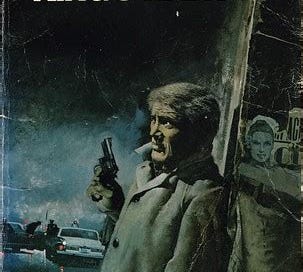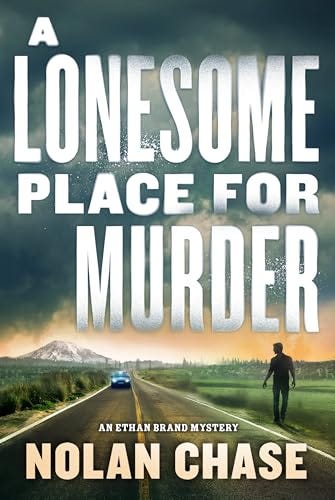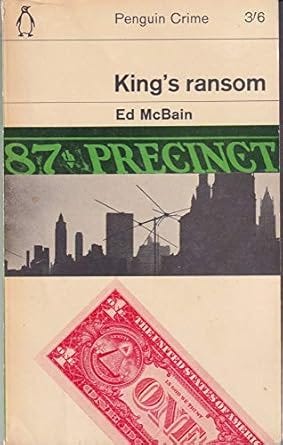Publishers Weekly had some nice to things to say about A Lonesome Place for Murder, the second Ethan Brand novel.
“Engrossing . . . Chase makes Ethan’s inner conflict deeply relatable, and peppers the investigation with a handful of welcome surprises. This series continues to impress.”
You can pre-order A Lonesome Place for Murder from Bookshop.Org (US)
Or pre-order from Indie Bookstores (CA)
Or from Barnes and Noble
How far would you go to save the life of your child? is a common enough premise in thrillers and action films. It telegraphs the desperation and extremes of action and emotion the characters will go through. It’s a solid building block of melodrama.
But there’s a far moral interesting moral question in Ed McBain’s King’s Ransom, the tenth book in the 87th Precinct series, what has been called the first police procedurals, and arguably the best (the only series I’d say is better is the Martin Beck books by Maj Sjowall and Per Wahloo, who cite McBain as their primary influence).
King’s Ransom starts with a tycoon named Douglas King caught up in a cutthroat deal for control of the shoe factory where he’s devoted his life, working his way up from the factory floor to an executive suite. His rivals want to take over the business and make cheap but stylish shoes; the current boss, the Old Man, wants to maintain the status quo of ugly practicality. King plans to outsmart both sides by mortgaging his home to buy stock and save the company from mediocrity.
And then his son is kidnapped.
The amount of money the kidnappers demand is about what he needs to close the stock deal. Obviously his child’s life comes first, even if it means ruining himself.
And then, in a brilliant turn of events, his son walks through the front door. The kidnappers grabbed the son of his chauffeur.
The question becomes, how far would you go to save someone else’s child?
None of the above sounds anything like a police procedural, but King’s Ransom fits the genre. The cops investigating include series regulars Steve Carella, Meyer Meyer and Cotton Hawes. There are nods to police procedure in how the kidnapping is handled, and in the ways the kidnappers try to get away with it.
But the story revolves around the moral choices of two characters. King, who’s asked to give up his life’s work to bargain for the son of a man who works for him, and Kathy, the wife of one of the kidnappers, who believes her husband’s partner will kill the boy once he gets the money.
Neither of these people is heroic, yet neither is without the potential to act heroically.
McBain (AKA Evan Hunter, born Salvatore Lambino) is one of the great pulp writers. His books tend to feature stretches of dialog, mostly griping from the overworked cops of the 87th, and passages of God’s eye description of the city of Isola, based on New York City.
With pulp writers, sometimes you can just feel them trying to fill pages and hit that 60,000 word mark. That’s true with McBain. But those passages add to the story, both a sense of atmosphere and a realism. So much of working life is listening to others complain until it’s your turn.
King’s Ransom is in the running for best 87th Precinct novel, though I’ve never read a bad one. The ones featuring the recurring villain The Deaf Man are especially good. Once you’ve read a few of them, there’s an incredible accumulation of details about the life of a city. Cases go unsolved for several novels, then break in unexpected ways. People enter and exit the series. Others die. In a way it’s like Harvey Keitel’s photo project in the Wayne Wang/Paul Auster film Smoke, where Keitel takes a photo of the same street corner every day.
So much of modern crime fiction seems to lean into the opposite direction of the quotidian, everyday and working class. (Just my preference, but I will take the corniest, shittiest detective novel over all but the best about rich suburbanites with dark secrets or cool guy super assassins.)
What McBain does in King’s Ransom and in the 87th Precinct series as a whole is present a world of small people making mean choices, and others cleaning up after them.
King’s Ransom was adapted by Akira Kurosawa as High and Low, and recently by Spike Lee as Highest 2 Lowest. I’m going to write about the Kurosawa film next, and the Lee when it comes out.








I just finished McBain's "The Fiddlers".
I've gone back to reading McBain recently. I inhaled them as a kid because it's what my dad read. They're well worth rediscovering nd the characters stick with you.